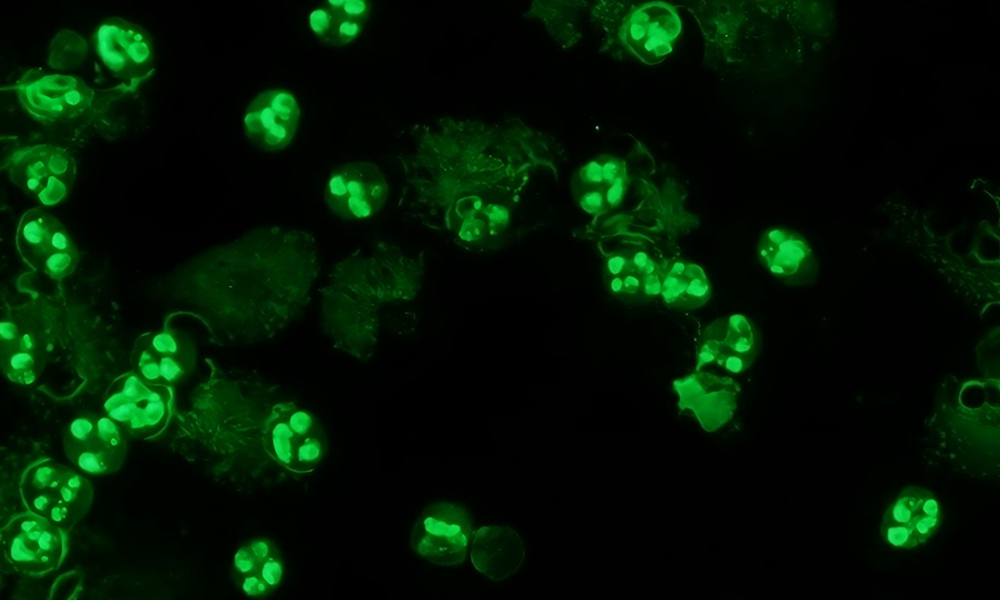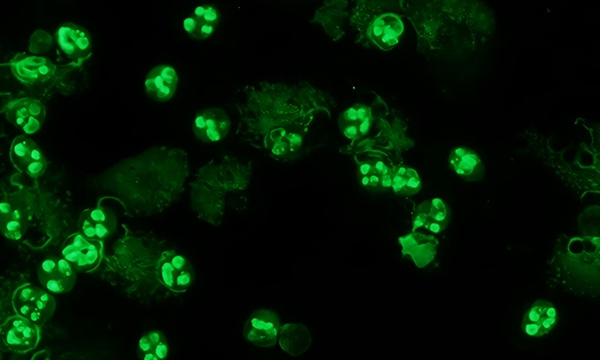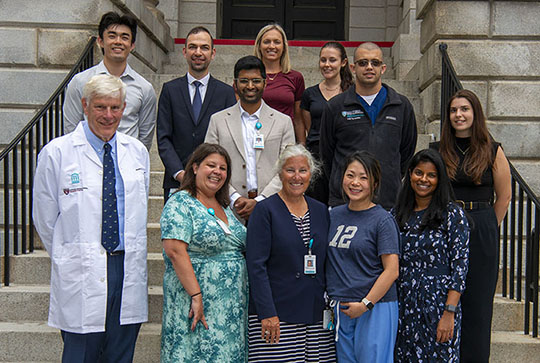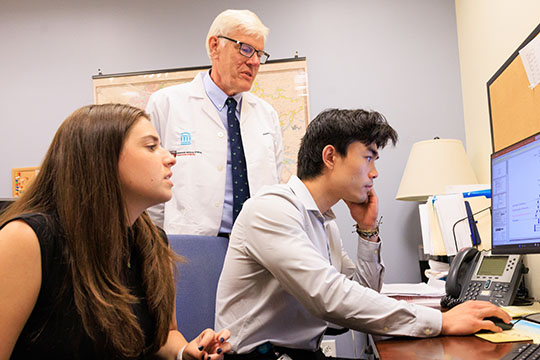Vasculitis & Glomerulonephritis Center


Contact Information
Mass General Brigham Vasculitis and Glomerulonephritis Center
101 Merrimac Street, 1st Floor
Boston,
MA
02114
Phone: 617-726-4132
Fax: 617-726-4213
Near Public Transit
Disabled Access
Explore This Program
Overview
The Mass General Brigham Vasculitis and Glomerulonephritis Center (VGC) combines the expertise of specialists from the Divisions of Nephrology and Rheumatology to provide individualized, high-quality care to patients with vasculitis, glomerulonephritis, and related conditions.

Our team of experts is dedicated to excellence in patient care through early diagnosis, personalized treatment, and leading-edge research. Many of our patients can expect to maintain long-term remission of vasculitis and glomerulonephritis. To maximize effectiveness of treatment and to minimize medication side effects, our approach relies on developing a personalized treatment plan for each patient. Contact us today to schedule a consultation with our team of providers.
Mission
At the VGC, our priority is inspiring hope and providing the very best holistic clinical care for our patients in a safe and compassionate environment. We tailor state-of-the-art treatments to our patients’ needs and preferences. We conduct cutting-edge research on advancing science and clinical care in vasculitis and glomerular diseases and educate other junior and senior physicians.
Vision
We envision dedicating ourselves to providing the very best accessible care for our patients, locally and globally; while becoming a leader in research and reinforcing the field by enlightening the mechanisms of glomerular diseases and vasculitis, generating new diagnostic and therapeutic discoveries, and understanding the complications of treatments. Our vision of patient care and research is complemented by investing in education and training to nurture the next generation of leaders.
Collaboration and Expertise
Our center provides patients with one access point to a core group of specialists who have extensive experience in treating patients with vasculitis and glomerulonephritis. As necessary, we will coordinate care with our team.
Subspecialty Experts
- Kidney genetic clinic
- Kidney transplant
- Cardiologists
- Dermatologists
- Ear, nose, and throat (ENT) specialists
- Gastroenterologists
- Infectious disease specialists
- Neurologists
- Ophthalmologists
- Pathologists
- Pulmonologists
- Rheumatologists
- Surgeons
Diseases We Treat
- ANCA vasculitis
- ANCA-negative vasculitis
- Anti-glomerular basement membrane disease (anti-GBM)
- Lupus nephritis
- IgA nephropathy
- Membranous nephropathy
- Minimal change disease
- Focal segmental glomerulosclerosis (FSGS)
- Complement-mediated kidney diseases (C3 glomerulopathy, dense deposit disease, C4 glomerulonephritis, C1q glomerulonephritis)
- Immune complex glomerulonephritis
- Infection-related glomerulonephritis
- Thrombotic microangiopathy
- Cryoglobulinemia
- Fibrillary glomerulonephritis
- Immunotactoid glomerulopathy
- IgG4-related disease
- Sarcoidosis with kidney involvement
- Monoclonal gammopathy-related kidney diseases (myeloma kidney)
- Other glomerular diseases
Video: Vasculitis and Glomerulonephritis Center
The Vasculitis and Glomerulonephritis Center at Mass General Brigham provides exceptional specialty care to patients with vasculitis, glomerular diseases and other related conditions.
Our Team
-
![]()
- Director, Vasculitis and Glomerulonephritis Center - Nephrology Division
-
![]()
- Vasculitis and Glomerulonephritis Center
- Nephrology | Department of Medicine
-
![]()
- Nephrology
- Department of Medicine
-
![]()
Harish Shanthanu Seethapathy, MD
- Assistant Physician, MGH Department of Medicine
- Instructor, Harvard Medical School
Our Research

The Mass General Brigham Vasculitis and Glomerulonephritis Center is dedicated to improving the treatment of vasculitis and glomerulonephritis through leading-edge research. Our physicians are engaged in research studies ranging from understanding the biology of vasculitis through laboratory-based research to testing new treatments in clinical trials. We are actively involved in clinical trials of a variety of diseases, including ANCA-associated vasculitis, IgA nephropathy, lupus nephritis, and other autoimmune kidney diseases. We are dedicated to expanding the treatment options and improving outcomes for our patients.
Selected publications
- Jeyabalan A, Czawlytko CL, Beck Jr LH, Trivin-Avillach C. Case 10-2025: A 32-Year-Old Woman with Flank Pain, Fever, and Hypoxemia. New England Journal of Medicine. 2025 Apr 10;392(14):1428-37.
- Efe O, Sauvage G, Chung J, Jeyabalan A, Al Jurdi A, Seethapathy HS, Laliberte KA, Niles JL. Protracted COVID-19 pneumonia in B-cell-depleted patients. Rheumatology (Oxford). 2025 Apr 1;64(4):2303-2305.
- Sauvage G, Zonozi R, Seethapathy H, Efe O, Jeyabalan A, Laliberte K, Niles JL, Al Jurdi A. Combination Induction Immunosuppression With Rituximab, Cyclophosphamide, and Prednisone for Fibrillary Glomerulonephritis. Kidney Int Rep. 2024 Nov 30;10(3):944-947.
- Zonozi R, Aqeel F, Le D, Cortazar FB, Thaker J, Zabala Ramirez MJ, Sattui Cortes SE, Attieh RM, Chung M, Bulbin DH, Shaikh A, Guaman K, Ford J, Diffie C, Gewurz-Singer O, Sauvage G, Jeyabalan A, Geara A, Ayoub I, Bomback A, Khoury LL, George JC, Jhaveri KD, Derebail VK, Niles JL, Geetha D. Real-World Experience With Avacopan in Antineutrophil Cytoplasmic Autoantibody-Associated Vasculitis. Kidney Int Rep. 2024 Mar 26;9(6):1783-1791.
- Zonozi R, Cortazar FB, Jeyabalan A, Sauvage G, Nithagon P, Huizenga NR, Rosenthal JM, Sipilief A, Cosgrove K, Laliberte KA, Rhee EP, Pendergraft WF 3rd, Niles JL. Maintenance of remission of ANCA vasculitis by rituximab based on B cell repopulation versus serological flare: a randomised trial. Ann Rheum Dis. 2024 Feb 15;83(3):351-359.
- Geetha D, Dua A, Yue H, Springer J, Salvarani C, Jayne D, Merkel P; ADVOCATE Study Group. Efficacy and safety of avacopan in patients with ANCA-associated vasculitis receiving rituximab in a randomised trial. Ann Rheum Dis. 2024 Jan 11;83(2):223-232.
- Zonozi R, Walters LC, Shulkin A, Naranbhai V, Nithagon P, Sauvage G, Kaeske C, Cosgrove K, Nathan A, Tano-Menka R, Gayton AC, Getz MA, Senjobe F, Worrall D, Iafrate AJ, Fromson C, Montesi SB, Rao DA, Sparks JA, Wallace ZS, Farmer JR, Walker BD, Charles RC, Laliberte K, Niles JL, Gaiha GD. T cell responses to SARS-CoV-2 infection and vaccination are elevated in B cell deficiency and reduce risk of severe COVID-19. Sci Transl Med. 2023 Nov 29;15(724):eadh4529.
- Zonozi R, Wallace ZS, Laliberte K, Huizenga NR, Rosenthal JM, Rhee EP, Cortazar FB, Niles JL. Incidence, Clinical Features, and Outcomes of Late-Onset Neutropenia From Rituximab for Autoimmune Disease. Arthritis Rheumatol. 2021 Feb;73(2):347-354.
- Cortazar FB, Rosenthal J, Laliberte K, Niles JL. Continuous B-cell depletion in frequently relapsing, steroid-dependent and steroid-resistant nephrotic syndrome. Clin Kidney J. 2018 Jul 24;12(2):224-231.
- Cortazar FB, Muhsin SA, Pendergraft WF 3rd, Wallace ZS, Dunbar C, Laliberte K, Niles JL. Combination Therapy With Rituximab and Cyclophosphamide for Remission Induction in ANCA Vasculitis. Kidney Int Rep. 2017 Nov 14;3(2):394-402.
- Cortazar FB, Pendergraft WF 3rd, Wenger J, Owens CT, Laliberte K, Niles JL. Effect of Continuous B Cell Depletion With Rituximab on Pathogenic Autoantibodies and Total IgG Levels in Antineutrophil Cytoplasmic Antibody-Associated Vasculitis. Arthritis Rheumatol. 2017 May;69(5):1045-1053.
- Cortazar FB, Leaf DE, Owens CT, Laliberte K, Pendergraft WF 3rd, Niles JL. Combination therapy with rituximab, low-dose cyclophosphamide, and prednisone for idiopathic membranous nephropathy: a case series. BMC Nephrol. 2017 Feb 1;18(1):44.
- McGrath MM, Isakova T, Rennke HG, Mottola AM, Laliberte KA, Niles JL. Contaminated cocaine and antineutrophil cytoplasmic antibody-associated disease. Clin J Am Soc Nephrol. 2011 Dec;6(12):2799-805.
- Csernok E, Holle J, Hellmich B, Willem J, Tervaert C, Kallenberg CG, Limburg PC, Niles J, Pan G, Specks U, Westman K, Wieslander J, De Groot K, Gross WL. Evaluation of capture ELISA for detection of antineutrophil cytoplasmic antibodies directed against proteinase 3 in Wegener's granulomatosis: first results from a multicentre study. Rheumatology (Oxford). 2004 Feb;43(2):174-80.
Education and Resources
Patient Gateway
Patient Gateway is a secure electronic portal that helps you better manage your own health or the health of a family member. It is available in several languages. Contact us if you have any questions.
Learn more about Patient Gateway
Vaccinations
Learn more about the Centers for Disease Control and Prevention's (CDC) list of vaccine recommendations.
Getting to Your Visit

We are located at 101 Merrimac Street, 1st Floor, Boston, MA 02114.
As we are situated a short distance from the MGH Main Campus, the following parking locations are the closest available options:
101 Merrimac Street Garage
Note: This is not an MGH patient garage.
Address: 17 Lancaster Street Boston, MA 02114
- Underground garage directly below clinic (LL Level)
- Take elevator to G level to access the clinic
Parking Rates: Pay in garage at kiosk after appointment
- 0-1 hour = $15
- 1-2 hours = $20
- 2-3 hours = $23
- 3+ hours = $25
Charles River Plaza Garage
This is an MGH patient garage.
Address: 207 Cambridge Street Boston, MA 02114
- Underground garage 5-10 minute walk from the clinic
Parking Rates: Pay at 165 Cambridge Street lobby or garage cashier office next to garage entrance/exit after your appointment
- 0-1 hour = $15
- 1-2 hours = $20
- 2-3 hours = $23
- 3+ hours = $25
Very limited, metered street parking is also available on Merrimac Street, Lancaster Street, and Portland Street, all within a short walk to our clinic.





